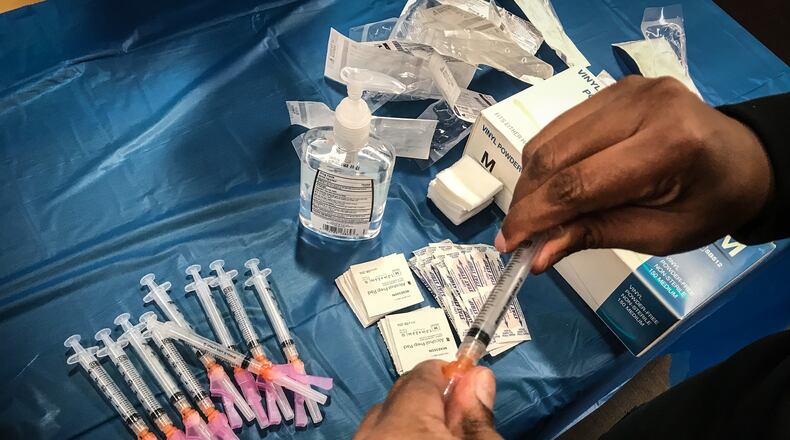House Bill 435 passed the House Health Committee on an 11-3 party-line vote Tuesday. Dubbed the Ohio COVID-19 Vaccine Fairness Act, it is intended to reconcile several competing bills. It was added to the House’s voting agenda for Wednesday.
When the session started, state Rep. Bill Dean, R-Xenia, moved to send HB 435 back to the House Committee on Rules & Reference.
The office of House Speaker Bob Cupp, R-Lima, swiftly issued a statement:
“We’ve had a lot of very good, very productive conversations on House Bill 435,” it says. “There are a few additional issues our members would like more time to explore. I think it’s important that we have a consensus within our caucus on how we move forward, so we’re going to take time to do that.”
Following Wednesday’s House session, Cupp said lawmakers will start immediately working on revisions. But the day’s meeting of the rules committee was canceled, and Cupp said they have no set deadline for further changes.
Cupp said he’s not specifically seeking to line up enough votes to override a potential veto from Gov. Mike DeWine, who has been critical of previous similar bills.
Should HB 435 win final approval, it would go into effect 90 days later, meaning it would likely not be in force until early 2022.
The bill would prohibit schools, colleges and employers from requiring students or employees from requiring a COVID-19 vaccine that hasn’t had full FDA approval. So far only the Pfizer vaccine has for adults; others remain under emergency use authorization.
Schools, colleges and employers could require students and workers to get a fully approved COVID-19 vaccine, but the bill creates several exemptions:
- People could claim a medical exemption with a written statement from their primary doctor.
- They could claim exemption due to natural immunity, from having had COVID-19 already. For that they would have to show proof of a COVID-19 antibody test showing “antibodies at least equal to or greater than those conferred by a COVID-19 vaccine.”
- People could also claim exemption for reasons of religion or conscience. For that they would have to submit their own written statement.
The exemptions do not apply to people who work in children’s hospitals, in hospital intensive or critical care units, who work with infectious organisms, or anyone who starts a job after the bill goes into effect.
Its provisions would remain in effect until June 30, 2023.
The bill would not supersede any vaccine requirements in collective bargaining agreements. Exemptions for students at public and private schools and universities are the same as for employees.
The Ohio Chamber of Commerce was told a “new approach” was being worked on, but wasn’t shown the bill text until it was released with committee passage on Tuesday, according to Courtney Whetstone, chief of staff for the Ohio Chamber of Commerce.
The chamber opposes the current bill, Ohio Chamber President and CEO Steve Stivers said in a statement.
“House Bill 435 infringes upon the rights of Ohio’s employers,” it says. “One-size-fits-all government mandates limiting employer rights are not the right approach. It is imperative that we let our businesses manage their workplaces free from government interference.”
It’s also drew opposition from public health officials.
“The bill as it stands puts the public’s health and safety at risk due to the actions of legislators who are not trained in public health,” Montgomery County Health Commissioner Jeff Cooper said in an emailed statement. “The legislators who support this bill are intentionally working to undermine public health agencies and the activities needed to control the spread of this pandemic virus. They have continually dismissed the scientific evidence and the expertise of the best medical and public health professionals, and they do not recognize the effects of their actions.”
This latest bill comes as the debate over COVID-19 vaccination and masking requirements have produced a flurry of bills from Republicans in the Ohio General Assembly, all seeking to prohibit some form of vaccination requirement and/or mask mandate.
The most sweeping of those proposals — House Bill 248, sponsored by state Rep. Jennifer Gross, R-West Chester Twp. — stalled as House Republican leadership seeks an overarching replacement for it and related bills.
About the Author

